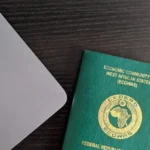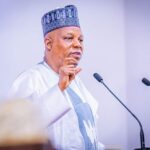President of the Nasrullahi Fathi Society, Mr Niyi Yusuf, who assumed the leadership of the foremost Islamic organization on October 20 speaks on the agenda of the new Executive Council under his leadership and how he intends to take NASFAT to the next level by not only deepening Islamic brotherhood but also promoting peaceful coexistence in an increasingly volatile, complex and uncertain world.
What challenges and opportunities this new role has brought upon you?
My colleagues in the Executive Council and I were sworn-in October 20 and that made me the seventh President of NASFAT. It has been interesting and challenging since we assumed office. The outpouring of support, good wishes, the show of love and show of camaraderie by different organs of the society, different stakeholders in and outside the society across the length and breadth of the society has been, in my view, unimaginable. It is not something that I expected. It just confirms to me that we are one brotherhood. Ultimately, that is the interesting bit of it.
Now the challenging bit of it, I would say, it is a huge responsibility, it is a fairly complex organization. We are in over 350 locations in the country and we are in many countries in Africa, many locations in the US, North America, Canada, and in several countries in Europe. So coordinating all of those is challenging. And if you understand that we live in a world where there is a lot of volatility, a lot of uncertainties, complexities and ambiguities, what tacticians call a VUCA WORLD. We live in a world that is volatile, uncertain, that is full of complexities and ambiguities and so now trying to manage a big organization that has more than 360 locations with millions of members and followers with diverse needs, you can imagine the complexities and doing that at the same time leading my own private company, Veraki, or balancing that with managing my family. So you need to balance the needs of NASFAT with that of the company where I work, with that of family and friends, with that of myself. I mean physically, mentally…you want to sleep for six hours, now I barely sleep for four hours because you need to manage all these competing demands. So that is the challenging part of it.
Since we assumed office, I have visited our members in Abidjan in Cote d’Ivoire; I have visited our members in Oyo zone, Kaduna zone, Ogun. I have been in Accra to meet our members. I have been in Warri in Delta. We have been in Abeokuta. So one has been crisscrossing the length and breadth of this country meeting members, understanding their situation, their needs and just making sure that leadership is available and accessible to those members. That in itself is a lot of logistics and it takes a lot of time. But it is what is required to be able to manage such a big and complex organization.
What are the plans you have outlined for the uplift of the society?
The mission of NASFAT is to develop an enlightened Muslim society nurtured by a true understanding of Islam for spiritual upliftment and welfare of mankind. We think that to be able to deliver on that broad statement or to take it to the next level, we decided that we need to focus on four priorities- health, education, livelihood and da’awah which is abbreviated as H-E-L-D. We believe with HELD, we would be able to deliver on the mission of the society.
What are some of the activities that would be carried out to achieve these priority areas?
There is going to be a biennial conference of the society from December 19 to December 21 where we would be unveiling the details of the activities we would like to do as part of HELD.
When you take health, we have a population of 200m persons in Nigeria and we have a National Health Insurance Scheme (NHIS) which covers less than five per cent of Nigerians, which means 95 per cent of is are not covered in that insurance scheme. And the way it works is, you pay a premium at the beginning of the year which allows you to go to hospital and get treated, meaning that the 95 per cent that is not covered is paying out of pocket, they are using their money to pay. Now statistics suggest that about 72 per cent of health spending is paid out of pocket. If you then juxtapose that with the fact that poverty level is high and we have more than 54 per cent of us who live under the poverty threshold, for those who are so poor, how will they be able to afford health services? That is why we have high infant mortality. We have the second-highest infant mortality below five years in the world because we have huge prevalence of poverty, we have low literacy level, we don’t have enough health insurance coverage and people are dying unnecessarily and that is why we are focusing on health, focusing on education to improve literacy level and focusing on livelihood.
We are trying to focus on education so that we have literate people and when you are literate when you are educated, knowledge is power, you know what to do.
Livelihood is about how do we make people have a means of livelihood, a means of income. It is either to help you get a job or to help you set up your own business through the instrument of Zakat, through the instrument of empowerment training, through employability training.
And on Da’awah, we will continue to make sure people have a true understanding of Islam so that we don’t misinterpret the text and we don’t have people who would become terrorists, who would say education is Haram (forbidden) or people who would divorce a woman just for the fun of it. We think education and Da’awah could help us address those.
In terms of bringing members together, there are beliefs that NASFAT membership is dwindling. We have an issue of some members who have broken away to form another association. How do you intend to unite the members and further strengthen the brotherhood in NASFAT?
The way we are approaching this is in multiple ways. The first way is to understand that if we assume we have 200m people in Nigeria and we say half of those are Muslims, that means we have 100m Muslims in the country and we have less than 10 per cent of those who are NASFAT members or who are going to any Islamic organization. I would guess that less than 10 per cent of Muslims associate themselves with any formal Islamic organization. We are talking 10m, that means you still have 90m more who are Muslims, who don’t associate themselves with any organization. So the market is huge and so NASFAT is not competing with any Muslim organization because we have got 90m more Muslims out there who are not members of any organization. We don’t see others as competitors, we see others as all of us are working together to call more people, to raise their level of consciousness, to get them to be more knowledgeable Muslims, to do what is right and run from what is bad. So I will be happy if you attend NASFAT or if you attend Ansarudeen or Quareeb but I will be happier if you attend NASFAT. What I don’t want is when you don’t attend any.
In NASFAT our programmes are speaking to humanities as a whole, not just to NASFAT members. As said, we are connecting with our members to know their problems and challenges. We are deploying technology, planning digital da’awah so we can be able to reach our members not just every Sunday. We are connecting especially with the youths who are more than 67 per cent of the nation’s population. We also plan to form a leadership academy that will speak to leadership development for youths, for our missioners and entrepreneurs.
What is the update on the Aseese Islamic centre and the mosque project, how soon is it going to be completed?
The first phase which is the main mosque itself is scheduled to be completed within the next 15 months. So you are talking between December 2020 and first quarter of 2021. We are looking at using it two Ramadan (fast) from now.
In terms of funding, our members and non-members are rising to the challenge. There is a lot of goodwill that we can tap into and the funds are coming in and that has led to the work we have done so far. Right now we are building the minarets and the domes. The minarets would be such that if you are at Kara area, you would be able to see the minarets from that far.
There is this challenge of people especially the non-Muslims misconstruing Islam as a religion which promotes terrorism, which fuels the Boko Haram insurgency and so on. What are your thoughts on this and what is NASFAT doing to debunk some of these misconceptions?
Our view is that religion has been misunderstood, misinterpreted by some people and they do it for personal reason, political reason and for ethnic reason. The holy book is very clear. Every day we say Assalam Alaikum, that is peace be unto you. Islam is a religion of peace. There are many instances in the Qu’ran and the Hadith where the Prophet has collaborated with people of different faiths.
People say Boko Haram means education is forbidden but the reality is we all understand that the first revelation of the Holy Qu’ran was about reading. If that is the case, how can some people now turn around to say education is forbidden? And if you go back into history, major scientific advancements are attributed to Islamic scholars whether it is Algebra in Mathematic or Astrology. These are things done by Islamic scholars and so it is worrisome when some people have now misinterpreted this and said education is forbidden.
If you talk about the misconception around girl education, Aisha, the wife of the Prophet was a very young lady but she was one of the major collectors of Hadith which means she was literate. Being a collector of Hadith means many things. It means she was literate, she was visible, she was in many places where things were happening, she was not just hidden in one room. My thinking is those who practice terrorism, those who say education is forbidden, they are not following the practices and the behaviour and guidelines of the Prophet. The Prophet has special consideration for knowledge, treating the old, the young and non-Muslims well. In NASFAT, we have special programmes to address those issues for women, for the youth to improve their knowledge of the religion.
How can we apply the teachings of Islam to attain global peace?
Interestingly, the theme of our Biennial conference is Peaceful Coexistence as a Panacea for Unity, Growth and Development. And that underscores the importance we put on peaceful coexistence not just in the family and the society. It is broad. It is between Muslims and non-Muslims, Yoruba, Hausa and Ibo, it is between Nigerians and non-Nigerians. We would be addressing issues of why do we have these crises and what can we do. I think fundamentally, it goes back to how much of the religion do we know and how much of the religion do we imbibe and practise?

 Join Daily Trust WhatsApp Community For Quick Access To News and Happenings Around You.
Join Daily Trust WhatsApp Community For Quick Access To News and Happenings Around You.


